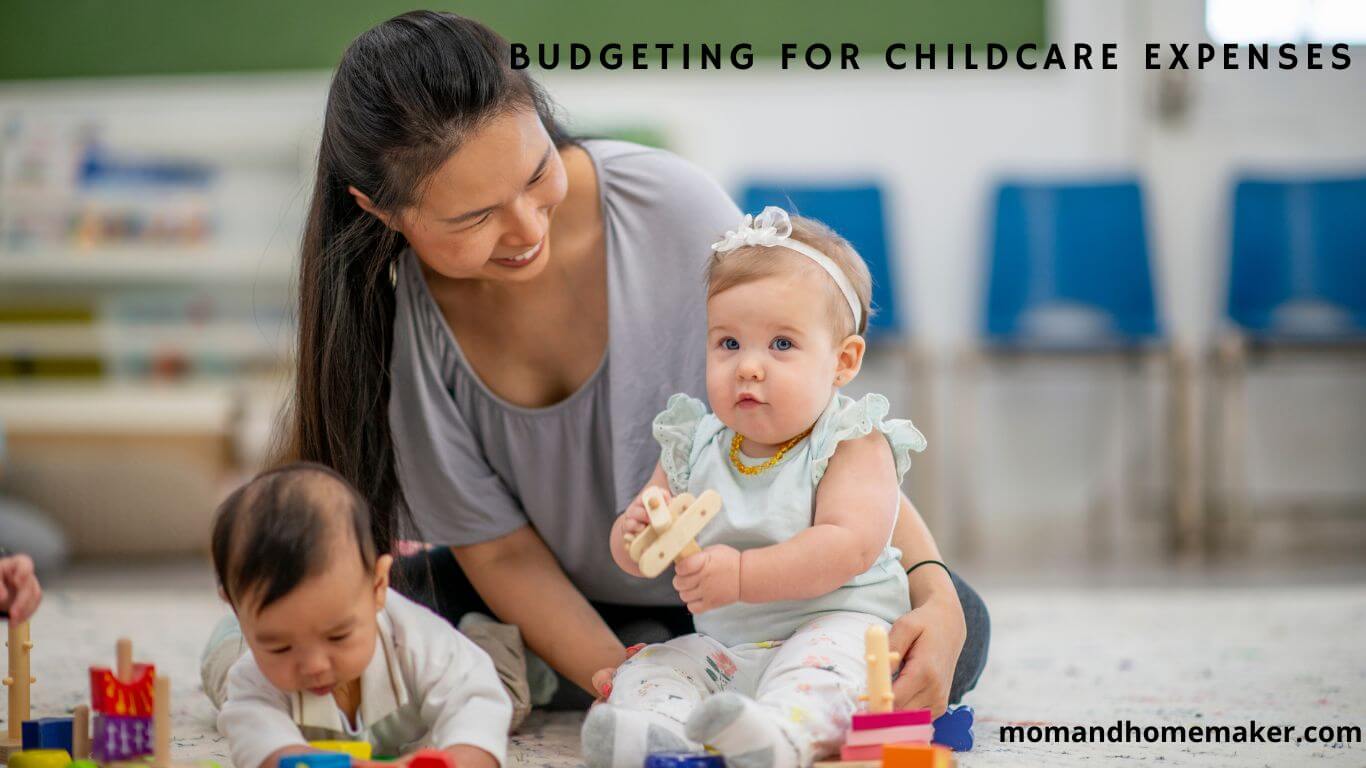
Navigating the realm of personal finance can be challenging, especially for single-income households. Your budget is like a compass that guides you toward financial stability and freedom. To help you on your journey, here are 13 insightful strategies that can steer your financial ship toward calmer seas.
By implementing these strategies, you can navigate the challenges of single-income households and steer your financial ship toward a more secure future. Remember, consistency and discipline are key to achieving your financial goals.
Track Your Expenses
To effectively manage your finances in a single-income household, it’s important to diligently track your expenses. Tracking your expenses not only helps you stay on top of your financial situation but also allows you to identify areas where you can save money.
One benefit of tracking your expenses is that it helps you find ways to increase your income. When you have a clear picture of your spending habits, you can easily pinpoint areas where you can reduce unnecessary expenses and allocate that money toward income-generating activities.
For example, if you spend a lot of money on dining out, you can start cooking meals at home and use the saved money to invest in a side business or take up a part-time job.
In addition, tracking your expenses helps you develop better financial habits and discipline. It creates a sense of accountability and responsibility towards your money.
When you see your expenses laid out in front of you, it becomes easier to make conscious choices about your spending and avoid unnecessary purchases. This habit can lead to long-term financial stability and freedom.
Set Financial Goals
Setting financial goals is a crucial part of effective financial planning for single-income households. It helps you stay focused and motivated on your journey towards financial stability and success.
When setting your financial goals, it’s important to consider both short-term and long-term objectives. Short-term goals can include paying off debt, building an emergency fund, or saving for a vacation. These goals provide immediate financial security and a sense of accomplishment.
Equally important are long-term goals that focus on your future financial well-being. Examples include saving for retirement, buying a home, or funding your child’s education. These goals require careful planning and commitment but offer long-term financial security and peace of mind.
To ensure your financial goals are achievable, be realistic and specific. Set measurable targets and create a timeline for achieving them. Break down your goals into smaller, manageable steps that you can consistently take. Adjust your goals as circumstances change, but always keep your long-term financial objectives in mind.
Create a Monthly Budget
Creating a monthly budget is an important step in effectively managing your finances in a single-income household. It provides a clear roadmap for your financial journey and helps you stay on track.
To start, carefully assess your income and expenses. Identify areas where you can cut back and explore opportunities to increase your income. You could consider part-time job options or find ways to monetize your skills and hobbies. Increasing your income can provide you with more financial stability and flexibility.
It is also crucial to prioritize building an emergency fund as part of your budget. Life can be unpredictable, and unexpected expenses can arise at any time. Having an emergency fund in place acts as a safety net during difficult times.
Aim to set aside a portion of your income each month into a separate savings account. Ideally, this fund should cover three to six months’ worth of living expenses.
Prioritize Essential Expenses
Managing finances in a single-income household requires prioritizing essential expenses to meet basic needs. It’s crucial to differentiate between necessary and non-essential expenses and allocate resources effectively.
Essential expenses include housing, utilities, groceries, transportation, and healthcare. These expenses are vital for your well-being and should be given priority in your budget.
To reduce essential expenses, you can employ various strategies. One effective strategy is negotiating with service providers for better deals on essential services like internet, cable, or insurance. Shopping around and using coupons can help you save money on groceries.
Opting for carpooling or public transportation can significantly cut down on transportation costs. Maintaining a healthy lifestyle can help avoid costly medical expenses. Regular exercise, a balanced diet, and preventive care can reduce healthcare costs.
Cut Back on Discretionary Spending
To optimize your budget in a single-income household, it’s important to consider cutting back on discretionary spending. By making some adjustments to your spending habits, you can save money and achieve financial stability. Here are some practical ways to cut back on discretionary expenses:
- Reduce entertainment expenses: Look for free or low-cost activities in your community, such as local festivals, community center events, or free movie nights. Consider canceling expensive subscriptions and finding cheaper alternatives for entertainment.
- Find affordable transportation options: Consider using public transportation or carpooling to save on gas and parking costs. If possible, walk or bike for short distances. Look for discounts on public transportation passes or explore rideshare options.
- Limit eating out: Prepare meals at home instead of dining out frequently.
Plan your meals , make a grocery list, and stick to it. Cooking at home not only saves money but also allows you to make healthier choices. - Shop smart: Before making a purchase, compare prices and look for sales and discounts. Consider buying in bulk or using coupons to save on everyday items. Avoid impulse buying and only purchase what you truly need.
- Cut back on unnecessary subscriptions: Evaluate your subscriptions and cancel those that you no longer use or can live without. This includes streaming services, gym memberships, and magazine subscriptions.
Save for Emergencies
One important aspect of financial stability in single-income households is creating an emergency savings fund. Life is full of unexpected events, and having funds set aside for emergencies can give you peace of mind and a sense of security. Rainy day savings are specifically for unforeseen circumstances like medical emergencies, car repairs, or job loss.
Building an emergency fund requires discipline and commitment. Start by setting a realistic savings goal, such as three to six months’ worth of living expenses. This will provide you with a safety net during times of financial uncertainty.
Make saving a priority by setting aside a portion of your income each month, even if it means cutting back on discretionary spending. Remember, every little bit counts towards building your emergency fund.
It’s crucial to keep your emergency funds separate from your regular savings account. This separation will prevent you from using your rainy day savings for non-emergency expenses.
Consider opening a dedicated savings account specifically for your emergency funds. This will also make it easier to track your progress and ensure consistent contributions to your fund.
Reduce Debt and Interest Payments
Take action to tackle your debt and reduce interest payments in a single-income household. Here are some strategies to help you lower your credit and consolidate loans:
- Create a plan to repay your debt: Take a close look at the debts you have and prioritize them based on interest rates and balances. Develop a plan to pay off high-interest debts first while making minimum payments on the others.
- Negotiate for lower interest rates: Reach out to your creditors and ask if they can lower your interest rates. A simple phone call can lead to significant savings.
- Consider transferring balances: If you have multiple credit cards with high interest rates, transferring the balances to a card with a lower interest rate can help you save money and consolidate your debt.
- Explore debt consolidation loans: Consolidating your debts into one loan can simplify your repayment process and potentially lower your interest rates. Take the time to compare different options and find loans with favorable terms.
- Seek professional assistance: If your debt feels overwhelming, consider working with a credit counseling agency. They can help you create a personalized debt management plan and negotiate with your creditors on your behalf.
Plan Meals and Grocery Shopping
To effectively manage your single-income household finances, it’s important to plan meals and grocery shopping. Meal planning can help you save money, reduce food waste, and make healthier choices. Here are some tips to get started:
- Plan your meals for the week: This saves time, money, and reduces impulse buys.
- Create a shopping list: It helps you stay focused and avoid unnecessary purchases.
- Get creative with leftovers: This minimizes food waste and stretches your budget.
- Incorporate budget-friendly ingredients: It helps you stay within your financial limits.
Smart grocery shopping is also crucial. By being mindful of your expenses and making strategic choices, you can make your money go further. Here are some tips:
- Compare prices and shop sales: This helps you find the best deals and save money.
- Buy in bulk: Especially for non-perishable items, buying in bulk can save you money in the long run.
- Use coupons and loyalty programs: Take advantage of additional savings on your grocery purchases.
- Stick to a shopping list: This prevents impulse buying and helps you stay on a budget.
Find Ways to Save on Utilities
To save on utilities in your single-income household, it’s important to be mindful of your energy usage and explore cost-saving measures. Here are some ways you can conserve energy and reduce your utility bills:
- Switch to energy-efficient appliances: Invest in appliances with the Energy Star label. These appliances are designed to use less energy without sacrificing performance.
- Install programmable thermostats: These thermostats allow you to set different temperatures for different times of the day. This ensures that you only use energy when it’s necessary.
- Use natural lighting: Instead of relying solely on artificial lighting, open curtains, and blinds during the day to let in natural light. This can help reduce your reliance on electricity.
- Unplug electronics when not in use: Many electronics continue to consume energy even when they’re turned off. By unplugging them when not in use, you can save on energy costs.
- Apply for government assistance programs: Check if there are any government assistance programs available in your area that can help lower your utility bills. These programs provide financial support or offer energy efficiency upgrades.
Consider Downsizing or Refinancing
If you want to improve your financial situation, consider downsizing your home or refinancing your mortgage.
Downsizing can bring significant benefits by reducing your monthly expenses and providing extra cash flow. Moving to a smaller home allows you to save money on mortgage payments, property taxes, and maintenance costs. It also helps you declutter your life and create a more manageable living space.
Another option to explore is refinancing your mortgage. By refinancing, you can take advantage of lower interest rates and potentially lower your monthly mortgage payments.
This frees up extra money that you can use to pay off debt, save for emergencies, or invest in your future. Refinancing also allows you to adjust the terms of your mortgage, such as extending the repayment period or switching from an adjustable-rate mortgage to a fixed-rate mortgage.
Before making a decision, carefully consider the costs and benefits of downsizing or refinancing. Evaluate your current financial situation, future goals, and long-term plans. It’s a good idea to consult with a financial advisor or mortgage specialist who can provide guidance and help you determine the best course of action.
Explore Additional Sources of Income
Consider diversifying your income by exploring additional ways to make money. Nowadays, relying on just one source of income may not provide the financial security you desire. By finding side hustles or other income streams, you can create a safety net and improve your financial well-being.
Here are five ideas to get started:
- Freelancing: Use your skills and talents to offer freelance services in your spare time. Whether it’s graphic design, writing, or web development, many individuals and businesses need your expertise.
- Renting out a room: If you have an extra room in your home, consider listing it on platforms like Airbnb. This can be a great way to earn extra money while also meeting new people and expanding your network.
- Starting an online business: With the rise of e-commerce, starting an online business has become more accessible. Whether it’s selling handmade crafts or launching a dropshipping store, there are plenty of opportunities to generate income online.
- Pet sitting or dog walking: If you love animals, offering pet sitting or dog walking services in your neighborhood can be a rewarding way to make extra money. Many pet owners are willing to pay for someone trustworthy to care for their furry friends while they’re away.
- Tutoring or teaching: If you have expertise in a particular subject or skill, consider offering tutoring or teaching services. Whether it’s academic tutoring or teaching a musical instrument, there are always individuals looking to learn and improve.
Utilize Budgeting Apps and Tools
Now that you have explored additional sources of income, it’s time to maximize your financial management by using budgeting apps and tools. Managing your expenses and tracking your budget can feel overwhelming, but with the right tools, it becomes much easier.
There are various budgeting apps available in the market that can help you take control of your finances. Take some time to compare the different options and find the one that suits your needs best.
Look for apps that offer features like tracking your expenses, categorizing your budget, and setting bill reminders. These features will help you stay organized and ensure that you’re on top of your financial obligations.
Once you have chosen a budgeting app, it’s important to use it effectively to track and manage your expenses. Start by setting up your budget categories and allocating a specific amount to each category. This will help you prioritize your spending and prevent overspending in certain areas.
As you make purchases, remember to log them into the app right away. This will give you a real-time view of your spending and help you make informed decisions. Regularly review your expenses and make adjustments to your budget if necessary. This will help you stay on track and achieve your financial goals.
Regularly Review and Adjust Your Budget
Do you regularly review and adjust your budget to stay on track with your financial goals? It’s important to frequently review and adjust your budget to maintain financial stability and achieve your long-term objectives.
By making necessary budget adjustments, you can ensure that your spending aligns with your income and effectively prioritize your financial goals. Here are five reasons why reviewing and adjusting your budget should be a top priority:
- Stay on track: Regularly reviewing your budget allows you to track your progress toward your financial goals and make any necessary adjustments to stay on the right path.
- Identify unnecessary expenses: By reviewing your budget frequently, you can identify any unnecessary expenses that may be eating into your savings and make the necessary adjustments to cut back on those expenses.
- Respond to changing circumstances: Life is unpredictable, and circumstances can change. Regularly reviewing your budget enables you to respond promptly to any changes in your income, expenses, or financial goals.
- Maximize savings: By reviewing your budget regularly, you can identify areas where you can save more money and make adjustments to maximize your savings potential.
- Ensure financial stability: Regularly adjusting your budget helps you maintain financial stability by ensuring that your expenses are in line with your income and avoiding any unnecessary debt.
Conclusion
Tracking your expenses, setting goals, and prioritizing essential expenses are all important steps in taking control of your finances.
Don’t forget to use budgeting apps and tools to make the process easier.
With a little effort and determination, you can turn your financial situation around and become a budgeting superhero!











